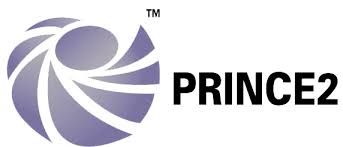
Modern Skills in Management, Supervision and Delegation
Course ID: 2507077101074EGI
Course Dates : 07/07/25 Course Duration : 5 Studying Day/s Course Location: Dubai, UAE
Language: Bilingual
Course Category: Professional and CPD Training Programs
Course Subcategories: Leadership and Management Excellence
Course Certified By: * Projacs Academy
* Professional Training and CPD Programs
Certification Will Be Issued From :
KSA
Course Fees: £2,940.22
Vat Not Included in the price. VAT may vary depending on the country where the course or workshop is held.
Click to Pay
Date has passed please contact us Sales@e-s-hub.com
Course Information
Introduction
The landscape of modern workplaces is characterized by rapid technological advancements, shifting organizational structures, and evolving employee expectations. In such a dynamic environment, the ability to manage teams effectively, supervise with clarity, and delegate tasks strategically has become indispensable for professional success. Mastery of these skills not only enhances operational efficiency but also fosters a culture of collaboration, accountability, and innovation within organizations. Managers and supervisors are increasingly required to balance technical expertise with interpersonal acumen, ensuring that both individual and collective goals are met.
Management, as a discipline, transcends mere oversight; it involves inspiring teams, aligning efforts with organizational objectives, and driving performance through structured processes. Supervision, on the other hand, demands a nuanced understanding of team dynamics, conflict resolution, and performance evaluation. Meanwhile, delegation serves as a critical tool for empowering employees, optimizing resource allocation, and fostering leadership potential. Together, these competencies form the cornerstone of effective leadership in any industry.
Challenges abound in the pursuit of excellence in management, supervision, and delegation. Miscommunication, resistance to change, and unclear expectations often hinder progress, leading to inefficiencies and diminished morale. Additionally, the rise of remote and hybrid work models has introduced new complexities, requiring managers to adapt their strategies to diverse working environments. Overcoming these challenges necessitates a combination of theoretical knowledge, practical tools, and experiential learning, all of which this course aims to provide.
The benefits of honing these skills extend beyond individual career advancement. Organizations that invest in developing their leaders’ capabilities in management, supervision, and delegation often experience improved productivity, higher employee engagement, and reduced turnover rates. Employees, in turn, feel more valued and supported, contributing to a positive workplace culture. This ripple effect underscores the importance of equipping professionals with the tools they need to thrive in leadership roles.
This course is designed to address the multifaceted demands of contemporary leadership. By integrating cutting-edge methodologies with real-world case studies, participants will gain insights into best practices while also developing the confidence to apply them in their unique contexts. The program emphasizes actionable strategies that can be implemented immediately, ensuring that learning translates into tangible outcomes.
Ultimately, the journey toward mastering modern skills in management, supervision, and delegation is one of continuous growth and adaptation. It requires a commitment to self-improvement, an openness to feedback, and a willingness to embrace change. For those who embark on this path, the rewards are significant—enhanced leadership capabilities, stronger team cohesion, and a competitive edge in an ever-evolving professional landscape.
Objectives
By attending this course, participants will be able to:
Develop a comprehensive understanding of modern management principles and their application in diverse organizational settings.
Enhance supervisory skills to effectively lead teams, resolve conflicts, and foster a culture of accountability.
Master the art of delegation, including identifying appropriate tasks, setting clear expectations, and monitoring progress.
Utilize communication techniques that promote transparency, trust, and collaboration within teams.
Implement strategies for managing remote and hybrid teams, ensuring alignment with organizational goals.
Evaluate performance metrics and provide constructive feedback to drive individual and team growth.
Navigate compliance requirements and ethical considerations in managerial decision-making.
Apply problem-solving frameworks to address challenges and optimize operational efficiency.
Who Should Attend?
This course is ideal for:
Mid-level managers seeking to refine their leadership skills and advance their careers.
Team leaders and supervisors responsible for guiding and motivating employees.
Human resource professionals tasked with developing leadership training programs.
Project managers requiring enhanced delegation and coordination skills.
Entrepreneurs and business owners looking to improve operational efficiency and team dynamics.
Professionals across industries such as healthcare, education, finance, and technology who wish to strengthen their managerial competencies.
Participants should have some prior experience in leadership or supervisory roles, as the course builds on foundational knowledge to explore advanced concepts and applications.
Training Method
• Pre-assessment
• Live group instruction
• Use of real-world examples, case studies and exercises
• Interactive participation and discussion
• Power point presentation, LCD and flip chart
• Group activities and tests
• Each participant receives a 7” Tablet containing a copy of the presentation, slides and handouts
• Post-assessment
Program Support
This program is supported by:
* Interactive discussions
* Role-play
* Case studies and highlight the techniques available to the participants.
Daily Agenda
The course agenda will be as follows:
• Technical Session 08.30-10.00 am
• Coffee Break 10.00-10.15 am
• Technical Session 10.15-12.15 noon
• Coffee Break 12.15-12.45 pm
• Technical Session 12.45-02.30 pm
• Course Ends 02.30 pm
Course Outlines
Foundations of Modern Management
Understanding the evolution of management theories and their relevance today.
Identifying key attributes of effective leaders in contemporary organizations.
Exploring the role of emotional intelligence in leadership and decision-making.
Analyzing organizational structures and their impact on management styles.
Day 2:
Supervision Techniques and Team Dynamics
Building trust and rapport with team members through active listening and empathy.
Managing team conflicts and addressing performance issues constructively.
Fostering inclusivity and diversity within teams to enhance creativity and innovation.
Implementing performance management systems to track and evaluate progress.
Day 3:
The Art and Science of Delegation
Recognizing opportunities for delegation and assessing task suitability.
Setting SMART goals and communicating expectations clearly.
Empowering employees through autonomy while maintaining accountability.
Monitoring delegated tasks and providing timely support and feedback.
Day 4:
Leading Remote and Hybrid Teams
Adapting management strategies to accommodate virtual and hybrid work environments.
Leveraging digital tools and platforms for seamless communication and collaboration.
Establishing routines and rituals to maintain team cohesion and motivation.
Addressing challenges unique to remote work, such as isolation and burnout.
Day 5:
Compliance, Ethics, and Continuous Improvement
Navigating legal and ethical considerations in managerial decision-making.
Ensuring compliance with industry regulations and organizational policies.
Developing a personal action plan for ongoing professional development.
Reviewing case studies to consolidate learning and identify best practices.



















































